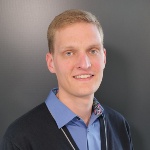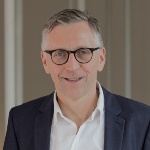TRAINME 3 focuses on the further development of the professional competencies of lecturers at South African TVET colleges in the context of curricular changes in the vocational fields of Electrical Infrastructure Construction, Engineering and Related Design as well as Information Technology and Computer Science, taking into account current needs. The proven quality features of the German vocational training system, the existing project experience (TRAINME and TRAINME 2) and the fruitful cooperation structures with the South African partners (including DHET etc.) are of fundamental importance for the project. The Institute of Educational Science (IfE) develops, tests and expands a scientific and didactic qualification for vocational teachers in the fields of mechatronics, energy and water management and renewable energies together with the Inter-company Training Centre in Eastern Bavaria (ÜBZO). In addition to the acquisition of professional scientific competences, the project aims to acquire professional didactic competences in the following areas: competence-oriented assessments, profession-oriented use of technical experiments and language-sensitive professional lessons. Through a scalable blended learning training programme, teachers will learn to develop and test teaching materials and reflect on their implementation in the classroom. TVET colleges are involved as venues for testing the content of the vocational modules. The qualification of the teachers as multipliers (so-called mastertrainers), the accreditation of the training modules by SAQA and the certification by QCTO ensure the sustainable continuation and recognition of the contents. Networking with partners such as KfW, GIZ and AHK is part of the project. The programme includes an ongoing formative and summative evaluation.
The work plan comprises the following phases:
Design of the further education and training modules, based on a curriculum and needs analysis to identify current skills deficits of teachers, to promote subject-specific, practical, didactic and pedagogical skills in close coordination with the DHET (WP 1). Development of demand-oriented training modules in the fields of mechatronics, energy and water management and renewable energies and their testing in blended learning format with targeted and systematic linking to the reference fields of technologisation and digitalisation required by the DHET (WP 2). Further qualification of selected participants in the training programme as multipliers (so-called mastertrainers) for the sustainable consolidation of the content (WP 3). Adaptive formative and summative evaluation in order to continuously optimise the project process and analyse any effects of the training and further education (WP 4). Preparation for accreditation and certification of the programme by SAQA and the QCTO as well as issuing a university certificate with ECTS credits for the content (WP 5). Public relations work: Documentation and dissemination of the results, including presentations at scientific conferences, effective public communication via various channels, written content production, provision of social media content for the DHET to attract participants and production of a final video documentary (WP 6). The project management ensures that the project runs smoothly while adhering to the framework conditions (time, resources, finances), ensures continuous coordination between the main participants (DHET, DLR project management organisation, BMBF), coordinates the network partners and continues the intensive networking with the South African stakeholders (e.g. AHK, Festo, GIZ) (WP 7).
Contact

Simon Kammeyer
Research

Bernd Zinn
Prof. Dr. phil.Dean of study affairs for Vocational Education and Technology Education, Dean of study affairs for Teaching Naturwissenschaft und Technik (NwT)



